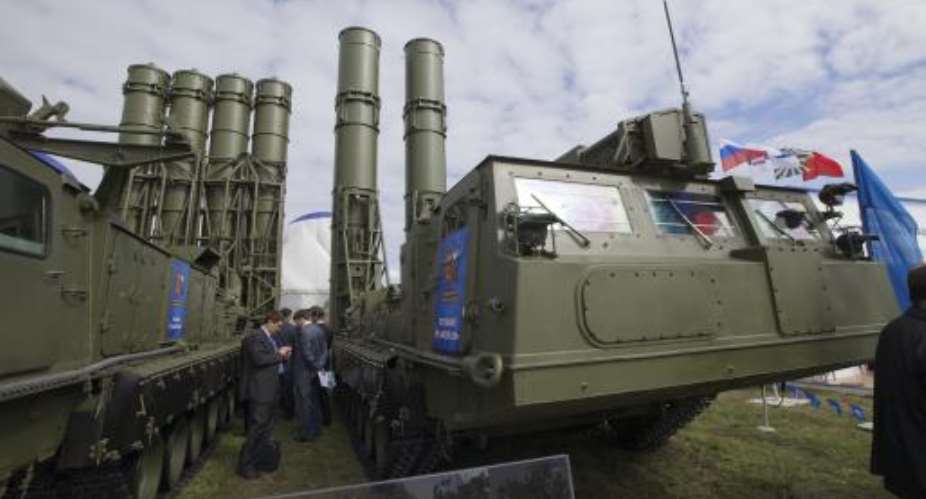By 146 B.C., the Mediterranean Sea, a hotbed of endemic battlefield between ancient navies had successfully become the imperial Roman “Mare Nostrum” - our common sea. Rome’s hegemony around its “Mare Nostrum” reconfigured the map of various nations-states and ethnic groups under one economic and military security umbrella.
Thus, the imperial Roman republic found itself atop the global hierarchy of power. Quickly, a world order by Roman fiat was dictated. By 117 A.D., Rome’s military umbrella had spreaded over most of Western and Southeastern Europe, Syria, Turkey, Arabia, and North Africa. As tempting as it may be, subsequent rising powers fell under the spell to reproduce at their own perils this Roman security paradigm.
The Post-11 September 2001 recasting of imperial democracies gradually dragged Washington into the Persian Gulf and the Sahel region by a farrago of regional crisis along a growing compulsion for militarizing American diplomacy. With the mantle of a self-anointed global protector, Washington reentered the global stage using international terrorism as a way of projecting the terms of its security umbrella for a new world order. First, as an antidote to global terrorism and instability, the Bush’s doctrine blew the trumpet of regime change and democratization to assuage his growing compulsion for global hegemony.
To hector Afghanistan and Iraq about the virtues of democracy and security, heavy military footprint in the Persian Gulf turned the region into a bazar for international military coalitions adventures. Meanwhile the Sahel region was transformed into a venue for open counterterrorism and peacekeeping missions.
Entering the second decade on the war on terror, the fantasy of a clean war took captive the mind of Washington’s security zealots. Leery of military adventures that spiraled out into a chaotic fiscal burden, President Obama came into office with the mandate of strategic retrenchment at home. Scaling back on strategic footprint overseas through a restrained foreign policy and accommodation of Washington’s international rivals became the new motto. A proof text of political commitment to the new era was displayed.
The Obama’s doctrine vouched for retrenchment and deprioritization of allies by abjuring American involvement on the global stage. The crisis in Libya, Yemen, Syria, and Egypt was a de facto strong signal from Washington’s resolve to put to rest the idée fixe of America as the policeman of the globe. Obama and his coterie of international security policy mavens came into office with the promise to usher in a new age of U.S. global security umbrella. President Obama was secretly longing to leave a political legacy as the drone president-cum-elite forces dispatching around the globe. From Yemen to Niger, Obama’s global security outfit heavily relies upon a premium on technological solution as an ersatz to military presence and political participation.
The outcome of the long Syrian crisis has upended the fundamentals of the Obama’s doctrine by given a victory lap to Russia. Moscow has positioned itself as the new “kingmaker-cum-sheriff” in the Persian Gulf to the point where Bamako is calling Russia for assistance against terrorism in the Sahel. Bamboozled by the ISIS-caliphate, imperial democracies have failed to see a multipolar world looming on the horizon. To indulge in the seduction of drone technological dominion to impose world order is courting disaster. Welcome to the new multipolar world!
Narcisse Jean Alcide Nana, is the author of a book on military strategy, Virus militarisés
Épidémies, politique étrangère et cyber géopolitique, 2015
Bibliography
- Colin Dueck, The Obama Doctrine: American Grand Strategy Today (New York, Oxford University Press, 2015)
- Jakub J. Grygiel & A. Wess Mitchell, The Unquiet Frontier: Rising Rivals, Vulnerable Allies, and the Crisis of American Power (Princeton, Princeton University Press, 2016)
- David P. Calleo, Follies of Power : America’s Unipolar Fantasy (New York, Cambridge University Press, 2009)





 “Stand and greet me”: Ban all NPP activities on your land until Akufo-Addo apolo...
“Stand and greet me”: Ban all NPP activities on your land until Akufo-Addo apolo...
 Election 2024: We won't allow you manipulate the process in favour of Bawumia — ...
Election 2024: We won't allow you manipulate the process in favour of Bawumia — ...
 Akufo-Addo’s arrogant attitude and utterances give much cause for concern — Maha...
Akufo-Addo’s arrogant attitude and utterances give much cause for concern — Maha...
 GUM won't join Alan’s ARC – Osofo Kyiri Abosom
GUM won't join Alan’s ARC – Osofo Kyiri Abosom
 Jesus Christ died for people in his era, not for me – Osofo Kyiri Abosom
Jesus Christ died for people in his era, not for me – Osofo Kyiri Abosom
 Ejisu by-election: Vote for Kwabena Boateng to come and help me complete my work...
Ejisu by-election: Vote for Kwabena Boateng to come and help me complete my work...
 ‘He’s just hungry’ – NPP Germany takes Mr. Beautiful to the cleaners; schools hi...
‘He’s just hungry’ – NPP Germany takes Mr. Beautiful to the cleaners; schools hi...
 Politicians have hijacked ownership of media houses to suppress press freedom — ...
Politicians have hijacked ownership of media houses to suppress press freedom — ...
 Dumsor: Bawumia admits power challenges; assure Ghanaians they will be over soon
Dumsor: Bawumia admits power challenges; assure Ghanaians they will be over soon
 SML deal is just a modified form of the Agyapa deal – Bright Simons
SML deal is just a modified form of the Agyapa deal – Bright Simons
